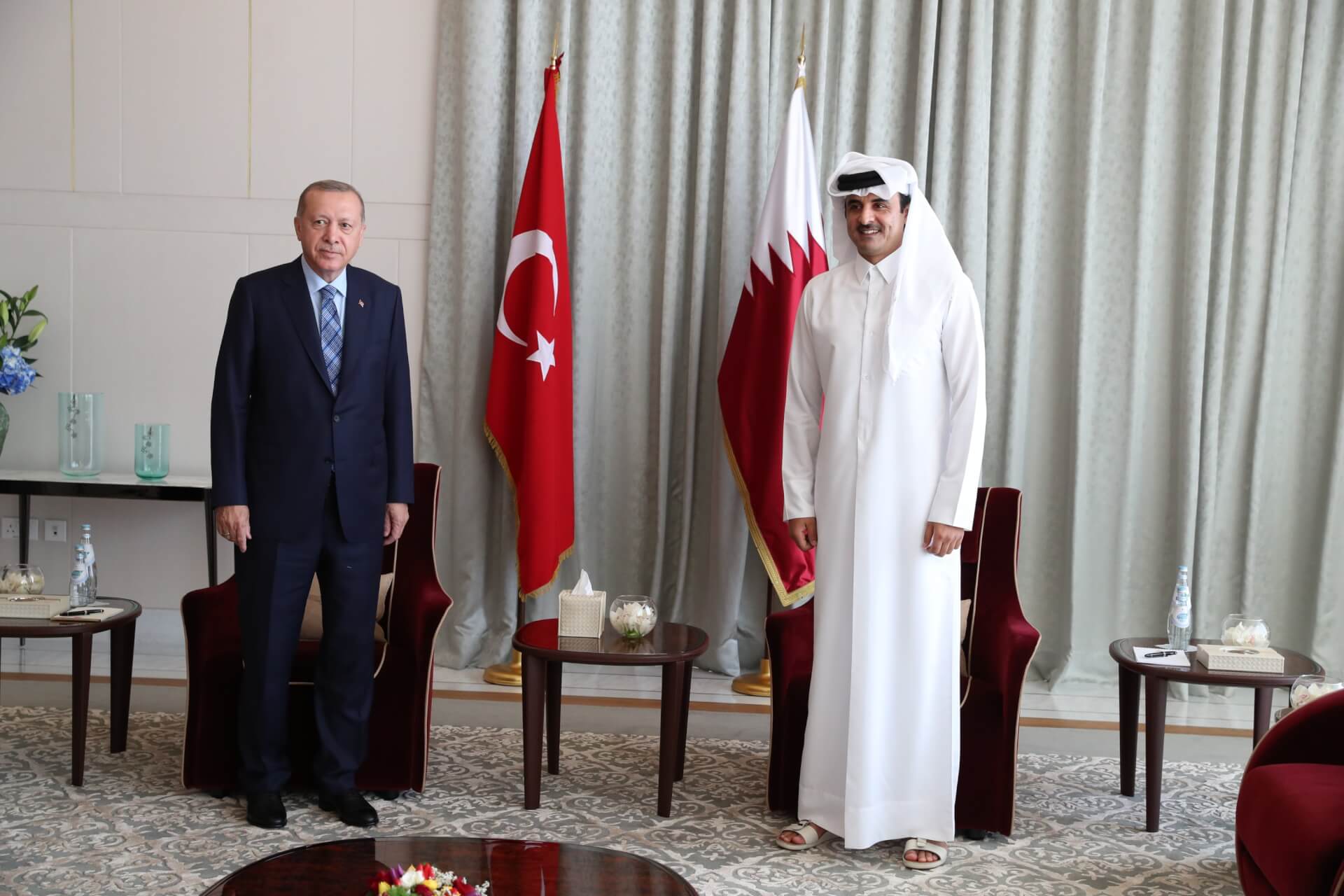Turkish President Recep Tayyip Erdoğan embarked on his first overseas trip since the beginning of the coronavirus pandemic on Thursday for a day-long bilateral working visit to Doha, Qatar. Erdoğan and a team of delegates met with Qatari Emir Sheikh Tamim bin Hamad Al Thani to discuss strategic cooperation and relations between the two countries.
Turkey’s Communications Directorate said that the heads of state of the “brotherly and friendly” countries were to exchange views on a range of international and regional issues. The Turkish delegation that accompanied Erdoğan included Ankara’s Treasury and Finance Minister, Communications Director, Presidential Spokesperson, Defence Minister, and National Intelligence Organization chief. No official details of the meeting have been divulged yet.
Qatar and Turkey have had strong relations, especially in the aftermath of the 2017 Gulf diplomatic crisis, when Egypt, Saudi Arabia, Bahrain, and the United Arab Emirates (UAE) cut all trade and diplomatic ties with their neighbour. The now three-year-long rift has defined regional alliances. For example, Israel has managed to gain diplomatic recognition with the UAE through its anti-Iranian stance and welcoming stance towards Arab embargoes in the Persian Gulf. It is also worth noting that Doha and Ankara are some of the biggest donors to the Gaza Strip in Palestine, with Qatar often hosting Hamas members and openly establishing better ties with Iran due to their shared interests in the mining of natural gas fields. Warming relations between Israel and the rest of the Gulf have further infuriated the two to amp up their regional presence.
Further, Turkey responded to the 2017 blockade by immediately deploying troops to the emirate and the increasing speed and quantities of food exports and aid in order to help the country prevent a food security crisis. In addition, Erdoğan had deemed the blockade as an “inhumane and un-Islamic death sentence”, also subtly accusing Gulf countries of having supported the failed 2016 coup against the Turkish administration. Now, Qatar serves as a Turkish stronghold in the Gulf, despite differing views of the two countries on support to Iran in Syria. While the Turkish military has been confronting Iranian groups in Syria since last year, the presence of both Ankara and Doha across the Eastern Mediterranean has been severely countered by proxy forces from Abu Dhabi, Riyadh, and Cairo.
In May, Al-Thani and Erdoğan had also engaged in talks over strategic and economic relations between the two countries via a telephonic conversation. Later that month, the Turkish Central Bank had announced a tripling of its 2018 currency swap agreement with Doha, signalling its procurement of ”much-needed foreign currency funding” to combat the economic losses due to the coronavirus pandemic and its large military spending in Middle East wars.
Image Source: Daily Sabah
Turkey President Erdoğan Visits Qatar in First Diplomatic Visit Since Pandemic
The two countries have shared close ties since the 2017 Gulf blockade to Doha.
July 3, 2020

